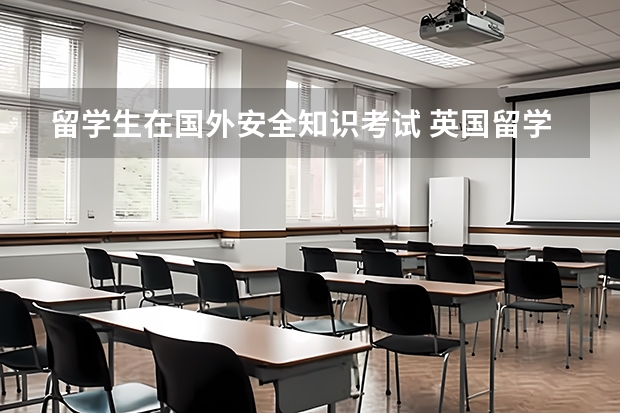科学备考雅思口语的方法有哪些?
2024-01-11 10:34:34 | 留学摆渡人
本文目录一览:

雅思考官教你雅思口语PART1考试技巧
上海环球青藤为大家带来一份由雅思考官写的雅思口语part1考试技巧,各位考生可以根据雅思口语考官的建议来准备雅思口语考试。希望对大家雅思口语备考有所帮助。IELTS is set into three sections.Part 1 is generally something about you, where you are from, do you like something, what do you think of something etc.
So you can prepare before the test to answer some of these questions. Of course you can't prepare for all things, as the examiner may throw in a few curve balls (tricky). This exchange of questions is going to be about 5 minutes.
When asked a question, for example, “Where is your hometown?” you might answer“Shanghai” This is correct but hardly a worthy answer that will convince the examiner to expect a lot from you.
Give the place and then say something about it as this shows you can engage in a conversation and not just regurgitate (give) facts and names. Maybe say something about the city, location, size, the fact you might not know much about it because you left at a young age.
“I come from China's largest city Shanghai, on the coast; do you know the area of Minhang in Shanghai? That is the part of Shanghai I was born”
A bit more than just one word.
Chances are you will get a follow up question as this is a conversation and in conversations you garner (get) information from those you are talking too.
“Can you describe… to me” or “How has the city changed” or “What do you like/don't like… about…” or “What are the people like” or "Who lives in your neighbourhood" or"Where do you buy groceries"
Answer how you feel. This isn't a test on facts, if you lie all the way through then be prepared as lying or non-truths can come back to haunt you.
“I come from the state of Nanjing in Beijing, next to India” Completely wrong but no one is taking notes on that. You will get a follow up question about it so chances are you will have todig yourself out of that hole (talk your way out of a lie). The truth is often easier to talk about.
There is a good chance you will also be asked about school or work as that is one of the main questions asked to someone you don't know.
If you are in school then maybe something about enjoying school or not enjoying school or maybe something about a topic in school, why do you study that?
If you are working then questions about what your job might be, how long have you been there, do you like it, will you stay long?
Again you don't have to tell the truth, maybe just half truths in case you feel you shouldn't give out too much information.
“I am an International spy here to assassinate you”
If you feel uncomfortable about a question then, just as in a conversation, say so and give the reason in a polite way. Politeness goes a long way. The examiner will understand as they are nice people and will try to reword the question so it isn't so invasive (direct) but they will also be able to tell if you are saying that just to bypass a question you find difficult or just don't like.
Other questions are likely to be about basic everyday things. Something about your family, neighbours, workmates, perhaps the weather or something to do with food or shopping. These are everyday things, or what you might ask someone you just met. Every question will likely have a follow up related to them. They are direct questions about the topic.
So food questions may deal with local dishes or if you like sweet food or who should do the cooking and why?
Something about your family might be the size of the family, what someone in the family does, your role in the family etc.
Be clear and precise, don't go off topic too much and don't repeat, don't repeat what you want to say. Be yourself, take a deep breath before you speak and if you spend a second thinking about it before you start talking, then nod in acknowledgement to the question. A little dead air for a second or two is fine as that is natural in conversations. A second or two, not five or 10 seconds.
Here are some other topics to think about. You can probably answer questions on them in your native tongue so now practice using English only.
Family, Language, your routine, holidays and festivals, travel, sport, Foreigners in China, Entertainment like TV and reading, cultural areas like art and architecture.
There is something called the 5Ws of Who What Where When Why and How. Basic words used to gather information. Maybe 'Have' and 'Will' should be in there too.
Pick a topic and try making questions using the Ws along with how, have and will. This isn't how questions are chosen but it is good way to practice and to help you anticipate the next question.
Like Sun Tzu says, "If you know your enemies and know yourself, you will not be imperilled in a hundred battles... if you do not know your enemies nor yourself, you will be imperilled in every single battle." The questions are the battle not the examiner.

雅思口语考试时间选择技巧
今天上海环球青藤为大带来的是雅思口语考试时间的选择技巧的相关资讯,备考的烤鸭们,赶紧来看看吧!1.想要口语高分的同学建议选择靠前一点的时间,越早越好。
一般早上的前两个比较好,因为考官的精力当时会比较充沛,考生所用的亮点和好词好句子容易被考官发现。越往后,考官越容易走神,特别是在二部分,很多考生辛辛苦苦准备了很棒的内容,但考官会因为分神错过很多,凭印象打一个大概的分数。
2.基础一般,但是表情肢体语言丰富的同学建议选择下午的中间时段。
这个时段考官的情绪会比较低沉,但是还没有特别特别低沉。这时候的考官比较需要外界调剂,会对很能逗别人笑的考生产生好感。所以稍微有些错误,但是考官也会比较宽容。
3.基础不好的同学建议不要选择上午11.30和下午16.00之后。
虽然时间段并不能让你有特别明显的分数提升,但是也不至于让你拿一个特别惨的分数回去。
雅思口语考试时间备注:
1.部分考场不同天数的考官可能会有调换。有一些是数字上的调换。比如双数考官会和单数考官替换。但也有不换的城市。
2.雅思口语考官会当场打分。很多口语考完因为录音笔故障需要重考的同学都有这种经历,官方老师会跟你沟通,如果你放弃复议的机会,可以不用再重考了。所以考生的分数当场会评判出来。
3.口语因为是人为评分,或多或少都会有一些主观因素。比如Josh作为一个老师,遇到喜欢的同学,会多讲一些;不喜欢的可能讲得少一点。但是主观因素只占不到10%的比例,考生实际实力还是占主导地位。

科学备考雅思口语的方法有哪些?
科学备考雅思口语的方法有很多,以下是一些常见的方法:
1.熟悉考试内容和评分标准。了解雅思口语考试的题型、时间限制和评分标准,可以帮助你更好地准备考试。
2.提高英语水平。雅思口语考试要求考生具备一定的英语水平,因此提高英语水平是备考的关键。可以通过听英语广播、看英语电影、阅读英语文章等方式来提高自己的英语水平。
3.练习口语表达能力。口语表达能力是雅思口语考试的重点,因此需要多加练习。可以通过模仿英美人士的发音、语调和语速来提高自己的口语表达能力。
4.积累词汇量。词汇量是雅思口语考试中非常重要的一个方面,因此需要积累大量的词汇量。可以通过背单词、做词汇题等方式来积累词汇量。
5.参加模拟考试。模拟考试可以帮助你更好地了解自己的水平和不足之处,并且可以让你更好地适应考试环境。
6.注意时间管理。在雅思口语考试中,时间非常宝贵,因此需要注意时间管理。可以在平时练习时计时,并且在考试前做好时间规划。 留学摆渡人
以上就是科学备考雅思口语的方法有哪些?全部内容了,了解更多相关信息,关注留学摆渡人。
雅思考试的备考方法有哪些?雅思考试是许多学生和专业人士为了提高英语水平和获得国际认可的重要考试。备考雅思需要一定的时间和努力,以下是一些备考方法:1.熟悉考试内容和格式:了解雅思考试的各个部分,包括听力、阅读、写作和口语,并熟悉每个部分的题型和要求。2.制定学习计划:根据自己的时间和能力,制定一个合理的学习计划。将每个部分的学习时间合理分配,确保每个部分都有足够的时间进行复

雅思口语考试各部分的内容怎么备考雅思口语考试您好,我是专注留学考试规划和留学咨询的小钟老师。在追寻留学梦想的路上,选择合适的学校和专业,准备相关考试,都可能让人感到迷茫和困扰。作为一名有经验的留学顾问,我在此为您提供全方位的专业咨询和指导。欢迎随时提问!雅思的口语考试是有三部分的,其中的内容都不一样,需要的时间也不同。所以大家在考试之前要先熟知这些考试内容,然后去准备。今天就到小钟老师

考前如何准备雅思口语考试要怎么准备雅思口语?大应该清楚在考前的准备很重要,特别是雅思口语考,那么本文要带来的是考前如何准备雅思口语考试的内容。1、如何准备雅思口语考中自我介绍的话题考生们是可以提前去准备一些有关自己情况的话题,例如自我介绍、工作环境、学习环境以及个人喜好等等。事实上这等于是做一番自我介绍。而后有机会情况下去找一个会讲英语的伙伴又或是朋友帮忙。若周围真的没有适合的人选,

高中生怎么有效地备考雅思口语?首先,合理分配学校学习和雅思的复习是高中生的首要任务。因为高中的学业相对来说是还是比较繁重的,尤其是在高三阶段,所以考生可以在高二会考后的暑假参加一次密集的雅思专项培训并且在两到三个月的复习时间内完成雅思考试。这样雅思考试就可以避开后续大量的高考备考复习,同时还能利用雅思考试帮助自己在英语上提高实力,更好的发挥高考。其次,充分利用高中的语法学习对

雅思口语Part3的答题技巧演示。今天,环球青藤朱国伟老师和大家分享一篇关于雅思口语Part3的答题技巧演示文章,值得大家阅读学习。更多精彩好文章,尽在环球青藤!雅思口语Part3问题1:Whataresomereasonswhypeopleeatout?雅思口语Part3的答题技巧演示1:It’satraditionthatweintendtotreatourfriendsandfamil

雅思口语考试流程和备考技巧您好,我是专注留学考试规划和留学咨询的小钟老师。在追寻留学梦想的路上,选择合适的学校和专业,准备相关考试,都可能让人感到迷茫和困扰。作为一名有经验的留学顾问,我在此为您提供全方位的专业咨询和指导。欢迎随时提问!雅思口语的备考,需要大家单独进行重视,因为它是需要开口对话的,所以准备一定要齐全。接下来和小钟老师看一看雅思口语考试流程和备考技巧。考试流程

雅思口语的10大技巧雅思口语考中常遇到有话题没准备,考场上紧张发抖遇到话题没背过怎么办。下面环球青藤小编整理了雅思口语的10大技巧。希望可以帮到大。雅思考时如何才能在考官面前展现的英语口语?下面为考生们整理了想要拿到雅思口语技巧。1.Listentoyourself.如果你听不到自己的发音问题,要纠正很难了。着把你将的话录下来并和英语为母语人士将的对比一下。应对雅思口语非常有效。

雅思口语备考之高频话题雅思口语第一部分高频雅思口语话题,经常围绕考生的personalinformation展开,包括:家乡背景类介绍,如canyousaysomethingdifferentaboutyourhometown。学习工作类,如whatisyouropinionaboutyourjob/major。兴趣爱好类,如whatdoyouusuallydoi
-
 留学生可以报考警察考试吗 开始留学生不得报考公安
留学生可以报考警察考试吗 开始留学生不得报考公安2023-09-06 02:00:23
-
 为什么留学生不用考试 为什么留学生考试,出国留学考那么少?
为什么留学生不用考试 为什么留学生考试,出国留学考那么少?2023-09-07 13:37:40
-
 留学生考试要准备什么 在英国留学需要参考的考试有哪些
留学生考试要准备什么 在英国留学需要参考的考试有哪些2023-09-07 05:50:29
-
 美国留学生在家考试考什么 美国大学可进行“带回家考试”
美国留学生在家考试考什么 美国大学可进行“带回家考试”2023-09-03 11:49:08
-
 留学生在国外安全知识考试 英国留学安全常识
留学生在国外安全知识考试 英国留学安全常识2023-09-03 09:01:07
-
 法国高中留学生入学考试 法国留学具备的条件有哪些?
法国高中留学生入学考试 法国留学具备的条件有哪些?2023-09-02 16:21:00